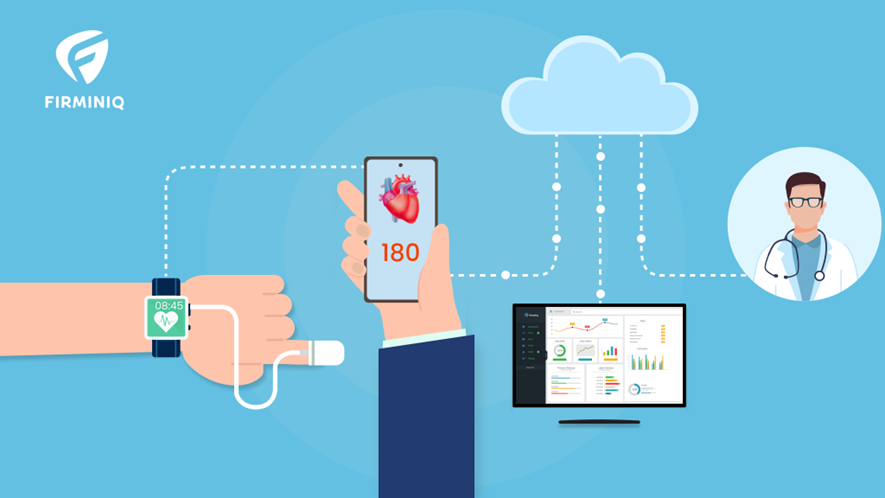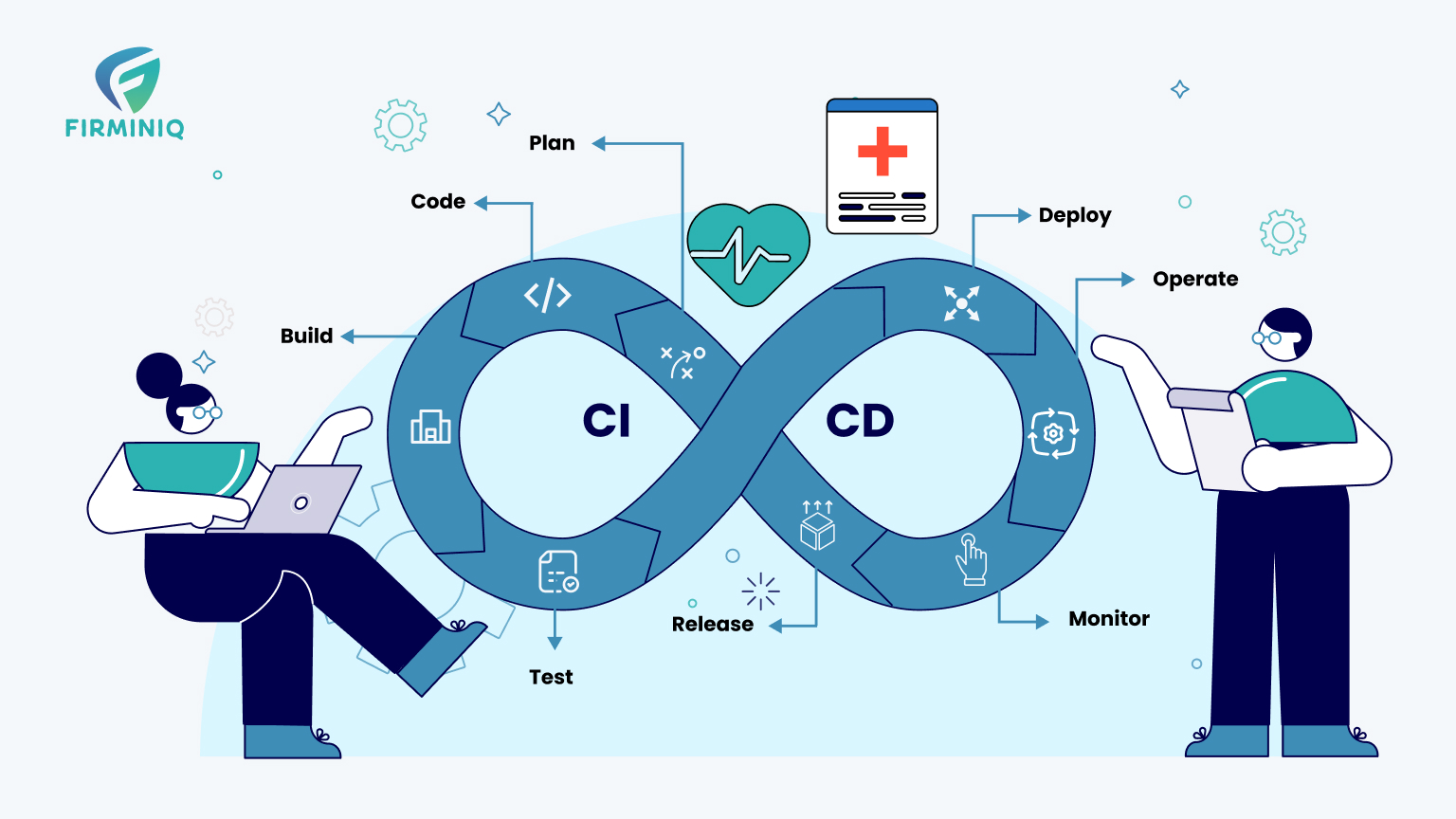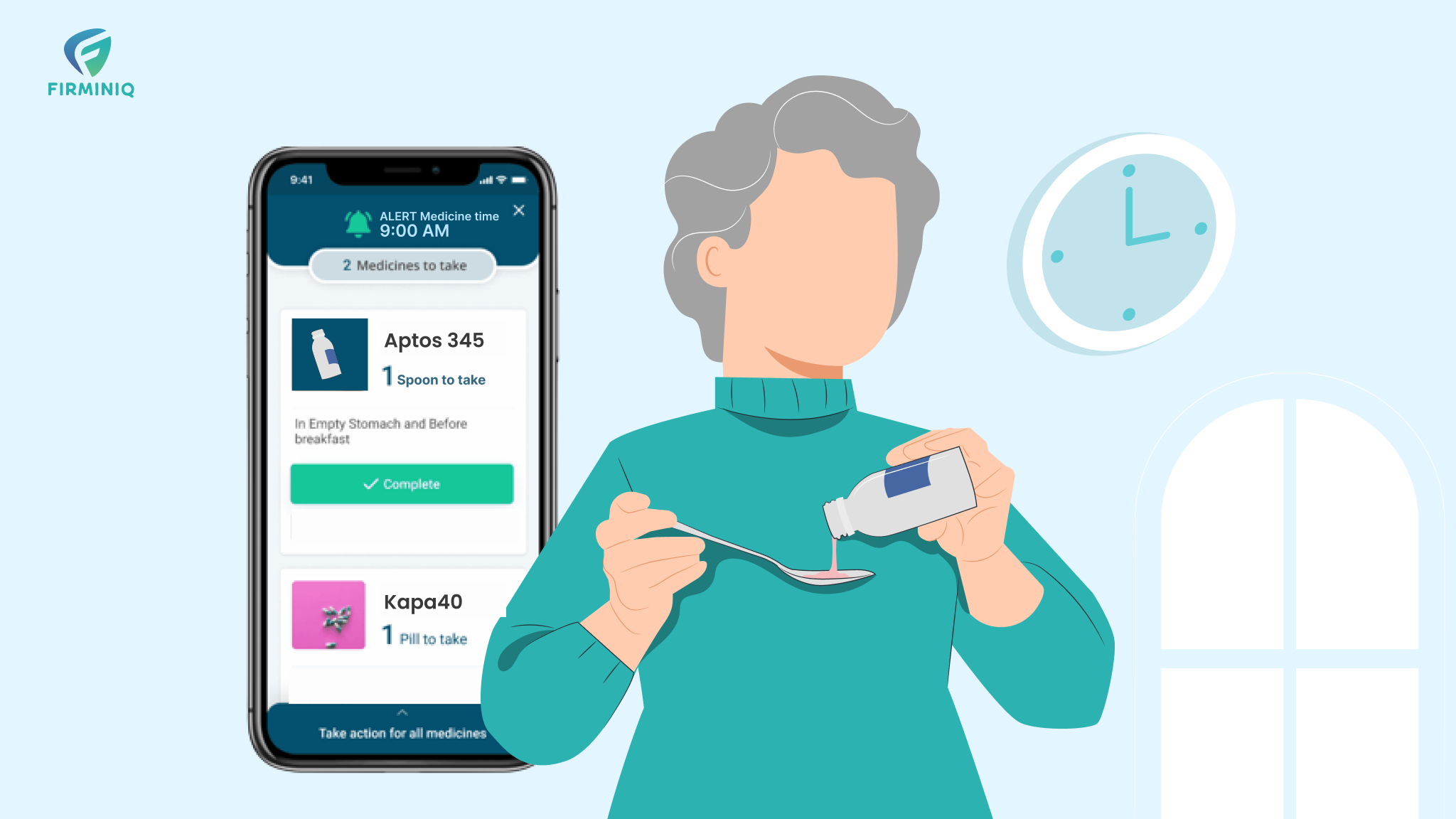There is an extensive adoption of modern technologies in connected healthcare like wearables, mHealth devices and medical robotics. It has made healthcare institutions rethink their business models while making them more patient-centric and accessible.
From the adoption of Artificial Intelligence (AI), Wearables, Internet of Things (IoT), Robotics and more, the landscape for connected healthcare is ever evolving. The leaders need to be aware of these latest trends in the industry to stay ahead of the competition.
By doing so, they can identify what opportunities their organizations need to leverage to grow their businesses and improve the delivery of care to patients. As per Fortune Business Insights, the global connected healthcare market is projected to grow from $51.68 billion in 2021 to $297.95 billion in 2028 at a CAGR of 28.4% in the forecast period.
Read on and find out all these trends in connected healthcare and their impact on the technology-driven industry.
Connected Health Trends that will Redefine the Industry Outlook
2022 was an exceptional year with the raised speed of innovation and trends in the healthcare industry. There are many technologies that positively impact the connected healthcare industry with an immense future. Here are the top connected healthcare technology trends:
1. Interoperability for a Seamless Patient Experience
Interoperability in healthcare refers to the usage of systems, devices, and tools to exchange health information with a seamless flow across an interoperable interface. All the stakeholders associated receive the same information (patient, physicians, provider, lab experts) and it is easily accessible.
According to Allied Market Research, the healthcare interoperability solutions market size was valued at $5,320.0 million in 2020 and is expected to reach $21,544.6 million by 2030, registering a CAGR of 14.9% from 2021 to 2030.
- Helps save time, as even if the patient changes physician, all their details including the medication and lab tests can be accessed by the physician with interoperability.
- Helps save cost, as it prevents the lab tests repeatedly if the patient decides to change their physician. The physician can view the test results and make clinical decisions accordingly.
- Helps maintain patient privacy, as it cuts the need for third person to access data and manually update the patient records. It helps to maintain patient and doctor privacy efficiently.
A good example of interoperability is the infusion pump, a medical device that delivers medications at a calculated rate via IV to a patient. The formula is programmed into the pump to ensure the correct dosage. Calculations are written in a printed order and are then programmed into the device. The interfaces help transmit the medication calculation from the hospital EHR to the pump. The process ensures safety checks throughout. (Source)
2. Wearable Smart Patches in Connected Healthcare
Smart patches are an emerging trend that uses a microneedle-based technology platform and are applied to the patient’s skin with an adhesive. The patches are more convenient and deliver drugs or other therapeutics via the skin. The patches are ideal for delivering efficient treatment to patients, pain relief, obesity, diabetes, and others.
The modern technology is known to dip deeper and target the precise biomarkers, helping improve the lifestyle related diseases for the patients.
One such use case from Future Markets Magazine depicts a patch that is helping patients in detecting blood sugar levels. A patch, Diabetes Care FreeStyle Libre by Abbott allows patients to apply a plaster-like sensor coin to their upper arm. The tiny device inserted directly under the skin measures the glucose content in the intracellular fluid once every minute.
Going a step further, Massachusetts Institute of Technology (MIT) developed a patch that not only measures data but also automatically administers drugs whenever necessary.
3. Data Privacy and Security (Blockchain)
As telehealth dominates the healthcare industry, data security becomes one of the major concerns for healthcare leaders. To that, blockchain is one of the most discussed technologies that prevents data breaches and ensures it remains protected and safe.
Also, the increased usage of IoT in healthcare augments the demand for blockchain technology. “Blockchain technology in the healthcare market size was valued at USD 281 million in 2020 and is now estimated to witness a 52.1% CAGR from 2021 to 2027.”- Global Market Insights.
Blockchain uses immutable ledgers that are continually updated on all participating network nodes. It enables connection with the existing EMR (Electronic Medical Records) and whenever the information is shared on the EMR, encrypted data is put on the blockchain that allows physicians to access the information.
FarmaTrust offers blockchain solutions that have applications for tracking pharmaceuticals, determining the authenticity of medical devices, and maintaining data security for patients scheduling vaccinations and diagnostic testing.
4. Early Warning Systems and RPM (Remote Patient Monitoring)
Remote Patient Monitoring as we all know is a crucial component of healthcare- and offers an ecosystem of connected medical devices that gain vitals of the patient readings in real-time and then send them to the healthcare provider. Remote patient monitoring and early warning technologies allow prior detection of the patient’s conditions and provide better care for a wider range of patients.
As with the RPM, the data is gathered and recorded, and real-time alerts are sent to the physician when the patient needs attention. The technology has immense potential that allows physicians to watch a broader range of patients and reduces the staff required for patient care and monitoring.
Research published by PubMed, “Assessing the Usability of a Novel Wearable Remote Patient Monitoring Device for the Early Detection of In-Hospital Patient Deterioration: Observational Study,” clearly concluded that RPM has an immense potential that detects higher risks early to deteriorate hospitalized patients, using signal based and algorithm-based predictions.
5. Advancement of Artificial Intelligence and IoMT (Internet of Medical Things)
Artificial Intelligence has significantly impacted connected healthcare. From easy disease prediction to diagnosis and patient treatment, AI assists physicians in seamlessly monitoring their patient’s condition and facilitates personalized care for them. AI offers personalization in healthcare that paves the way to streamline the customer journey and make experiences more connected.
An example of artificial intelligence in healthcare associated with developing new tools is using natural language processing (NLP) to speed up clinical trials. The patient data is collected from various sources and high-dimensional graphs are structured that allow patient identification and high-advanced patient-to-disease matching. (Source)
“The global artificial intelligence in healthcare market size was valued at USD 15.4 billion in 2022 and is expected to expand at a compound annual growth rate (CAGR) of 37.5% from 2023 to 2030.”- Grand View Research
AI in combination with VR healthcare solutions offers more precise treatment to patients while helping doctors to analyze conditions with ease.
Whereas IoMT connects various medical devices utilizing Artificial intelligence. The Bluetooth-enabled devices transmit data to mobile or cloud. The data received is efficiently used for diagnosis, treatment, and sophisticated monitoring of health conditions.
IoMT in connected health has opened an array of opportunities for personalized care. Connected devices allow the care providers to react to real-time patient data and offer better outcomes of the patient conditions.
Transforming Healthcare and its Future!
The healthcare industry is continuously transforming, allowing patients to receive quality care. The healthcare leaders must ensure the patient’s journey is personalized and they can leverage the best tools.
Offering advanced solutions with the integration of the latest technologies helps healthcare professionals bring significant value and quality care. Keeping all these points in mind we aim to build solutions that offer proactive patient care and engagement. Contact us if you are looking forward to developing your trendiest connected healthcare app with us!









